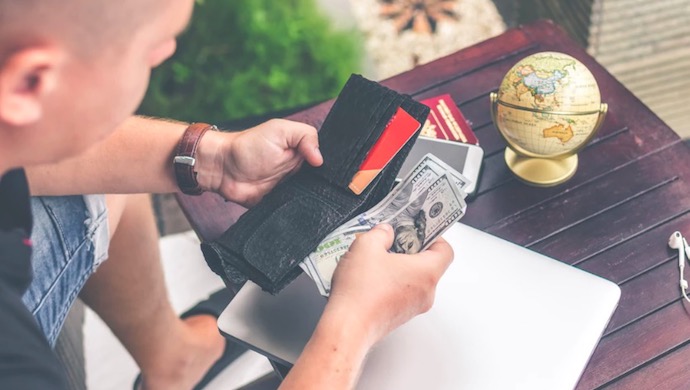As businesses continue to move onto purely digital storefronts, there exists the possibility that people will become stuck outside of the digital economy

Could you imagine what it would be like to live without a bank account? In this modern day in age, it’s hard to picture what it would be like to “not” have a bank account. For many, this is actually how they live their day-to-day lives.
Meet the unbanked, a large percentage of the world’s population that lives without a bank account. The unbanked keep their cash at home, pay bills in person, and live life a lot different to most.
Recently, several new trends have emerged specifically in the Blockchain sector. These new trends aim to improve the lives of billions of people worldwide that don’t have access to a personal bank account or financial institution.
Statistics on the Unbanked Sector
The global consultancy firm Accenture estimates that bringing unbanked adults and businesses into the banking sector could generate about US$380 billion in new revenue for banks.
By supplementing the robust digital infrastructure of the blockchain with a physically fault-tolerant hardware infrastructure, developing countries may finally be presented with a viable stop-gap solution for bootstrapping their economies into the digital era.
Hardware-based Transaction Caching to Bring Cellular Reliability
Nations such as Kenya have seen the development of systems that allow for Peer-to-Peer digital payments. These systems are achieved through the use of hardware-based transaction caching, and they compensate for the lack of reliable cellular network coverage.
Also read: 4 practical ways blockchain tech can transform your business
One such project headed by the University of Cambridge, called DigiTally, is a tamper-resistant overlay SIM that sticks on top of the phone’s existing SIM card and contains its own CryptoKey material and value counter.
These features allow users to process and authenticate transactions by exchanging 8 digit keys. The keys are temporarily stored on the overlay SIM and offloaded by either party onto the network once a reliable connection is established.
Unified Payment Gateways to Help the Unbanked
A company called Treon uses the security, flexibility and transparency of the blockchain to help support consumer-facing utility industries such as electricity, gas, and water.
They’re creating a utility-specific cryptocurrency called TXO that will allow users to have access to a unified payment gateway for utilities and services providers through a mobile interface. The token utilizes smart contracts that integrate with IoT sensors and utility payment contracts.
Utility payment gateways like Treon can help connect the unbanked to utility providers. At present, the unbanked will typically visit utility companies in-person, line up, and pay in cash.
Increased Level of Support for the Unbanked
Development of Decentralized Exchanges (DEX) and Decentralised Autonomous Organisations (DAO) present a unique opportunity for users to integrate utility payments as a part of responsible purchasing decisions.
As an example, smart meters throughout an apartment complex could allow customers to automatically offset the cost of their water bill by the amount of energy produced by the complex’s communal solar panels array — depending on whether they choose to participate and actively contribute to the array’s maintenance.
Distributed Ledgers to Target 1.7 Billion Unbanked Adults
The adoption of telecommunications worldwide has continued to grow steadily, with studies from GSMAintelligence revealing that around 67% of the world’s population has access to a mobile phone connection.
Also read: Should more traditional companies embrace blockchain technology and tokenization?
The World Bank Group estimated that in 2017, over 1.7 billion adults lacked accounts with insured financial institutions. Some of the most commonly cited barriers to maintaining a bank account among those surveyed were a ‘lack of money’ and the ‘restrictive cost’ of account keeping.
While Blockchain data structures offer many ways to augment existing infrastructure, their place as a primary financial infrastructure within developing economies should not be understated. One thing remains certain, Blockchain-technology may have a strong part to play in the economy for those that are unbanked.
—-
e27 publishes relevant guest contributions from the community. Share your honest opinions and expert knowledge by submitting your content here.
Photo by Artem Bali on Unsplash
The post Here are some trends about the unbanked that blockchain tech needs to address appeared first on e27.